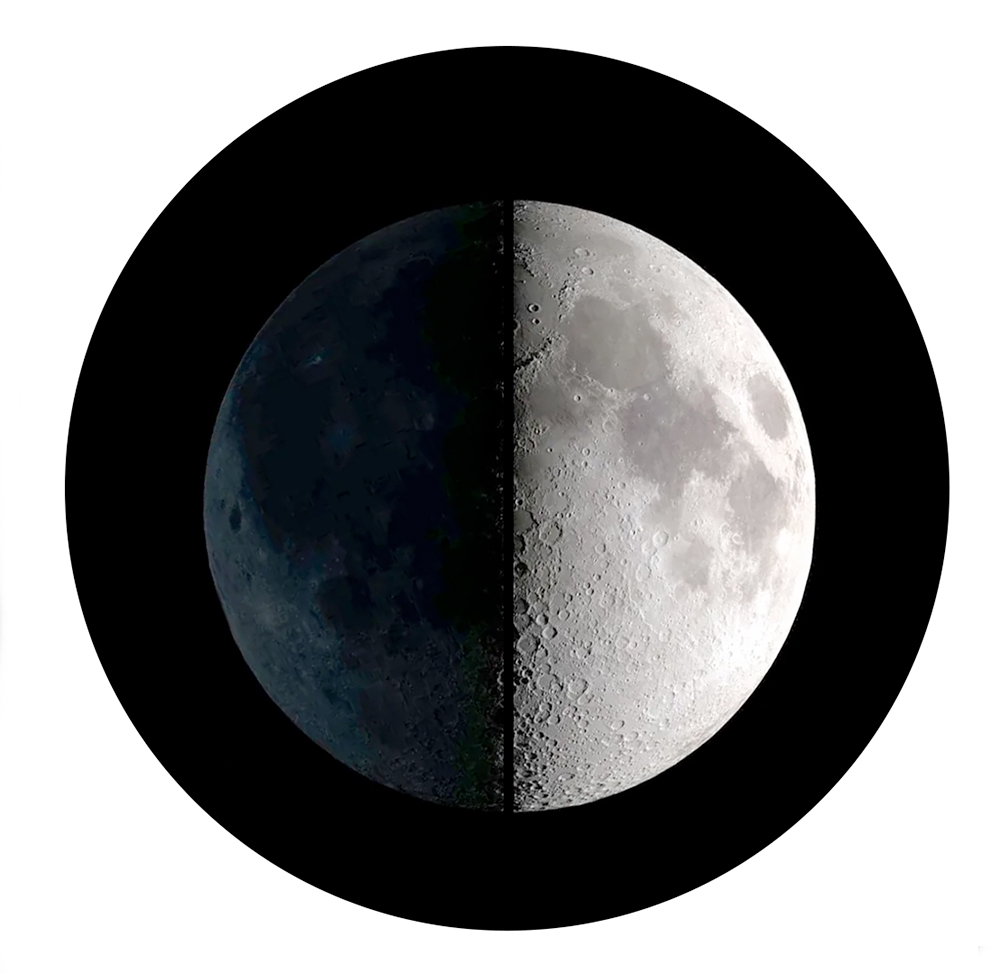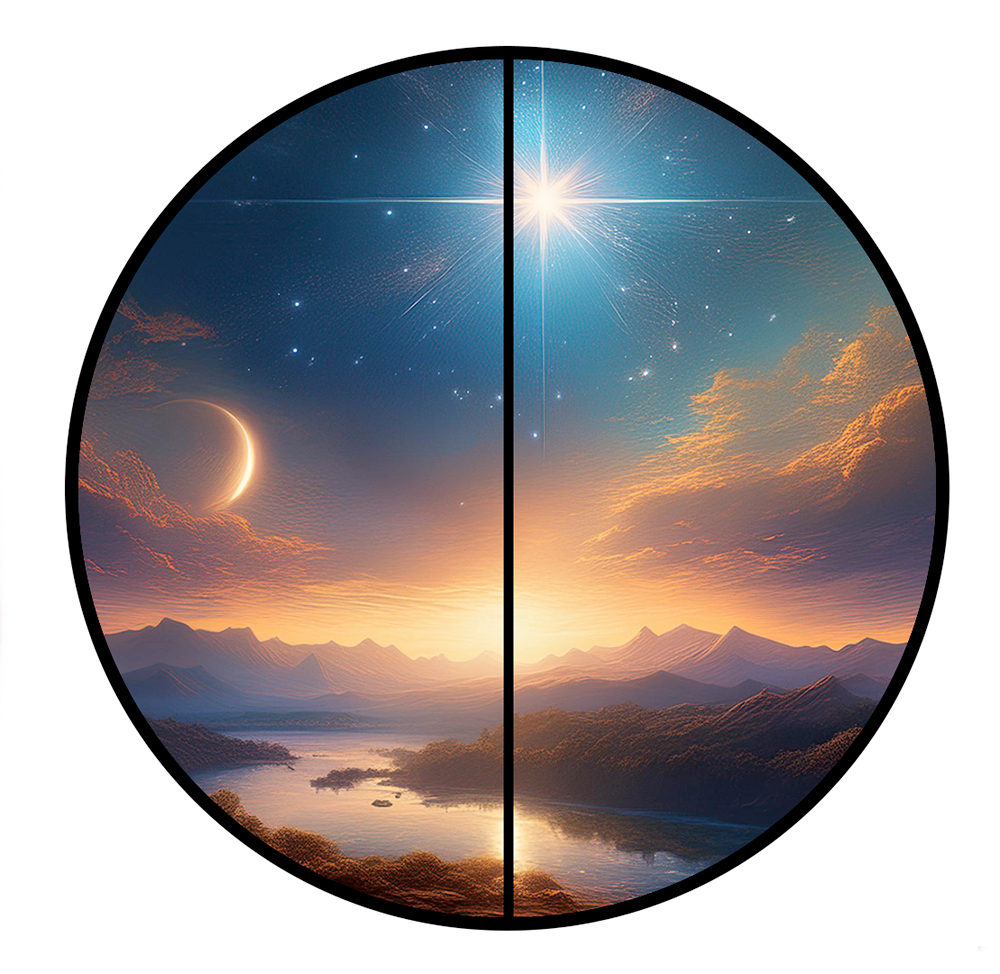 Genesis 1:16
Genesis 1:16

The Day Star, Stars, and Moon
And mighty ones is making the self eternal second one the Curse of the Mega Ones, the self eternal Luminary of the Mega One for an allegory of the Day, and the self eternal Luminary of the Small One for an allegory of the Night, and the self eternal Stars.

Day Star/Dawn Star
The only planet that spins backwards....
leading the way to the Day...
"Current theory holds that Venus initially spun in the same direction as most other planets and, in a way, still does: it simply flipped its axis 180 degrees at some point..."
(cf. Scientific American)And God will make two great lights; the great light for the rule of the day, and the small light for the rule of the night and the stars.
And God made the two great luminaries: the great luminary to rule the day, and the small luminary and the stars to rule the night.
And God made the two great lights—the greater light to rule the day and the lesser light to rule the night—and the stars.
And God made the two great lights, the greater light for regulating the day and the lesser light for regulating the night, the stars also.
Footnotes
| 31 | Hebrew את שני המארת הגדלים. eternal self second the Curse of the Great Ones. As noted in the previous verse (v14), המארת "ha'me'arot" is the word for "curse" with a definite article here. שני can be either two or second. Here it refers to the second one as in the previous "second day." The context is that of a division between two, and now the second are becoming Great Curses. Do we add a vowel point for a letter that is not there? And make it read "me'orot"? Or read it as is? | ||||||||||||||||||||||||||||||||||||||||||||||||||||||||||||||||||||||||||||
| 32 | Hebrew הקטן, ha-qaton. Strong’s #6996. From the root qatan (#6994, 6962), to cut short, cut off, abridge, crop, pare. Cf. Gesenius and Fuerst. Interpreted as “young” or “small”. Hence the “little finger” in 1 Kin. 12:10 is properly the small finger and likely means the thumb. This noun is mostly used of younger or youngest builders [sons] and built-ones [daughters], i.e. “We have a small [qaton] sister…” Song of Solomon 8:8. This is not the normal word for “small/little”, but speaks of something cut short. “But you are not thus, yet the greater-one in you -- become as the small-one; and the one leading, as the one serving.” Luke 22:26 RBT | ||||||||||||||||||||||||||||||||||||||||||||||||||||||||||||||||||||||||||||
| 33 | The Comparison Strong’s #4475, memshalah. Noun feminine. Comparison, parable, allegory. In Hebrew, the word "ממשלת" (memshalat) can mean "parable" or "allegory." Let's break down the morphology of this word:
See #4474, #4910, #4911, #4912 In the case of the noun memshalah, the interpration of "dominion" is erroneous. There are 19 instances of this feminine noun:
| ||||||||||||||||||||||||||||||||||||||||||||||||||||||||||||||||||||||||||||
| 34 | Strong’s #3556, ha-Kokavim. The round ones, balls, globes. From an unused root kavav meaning to be round, circular. Cf. Gesenius, Fuerst. One would think that a different root would be used, related to fire, sparks, or light. |